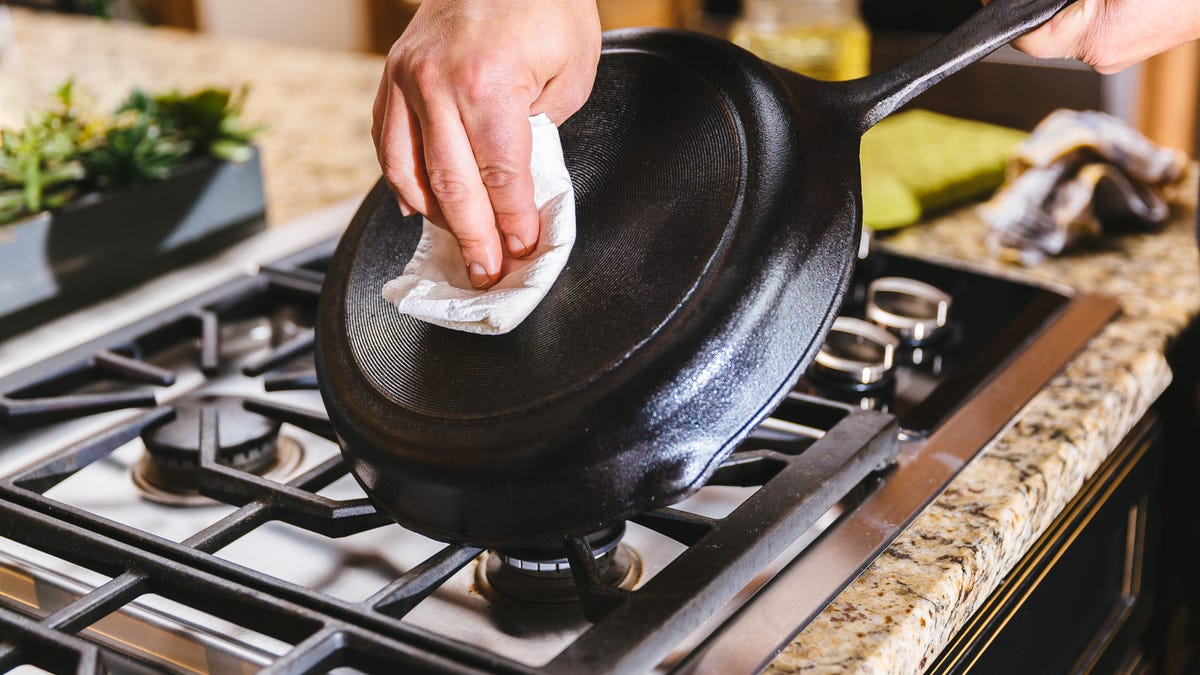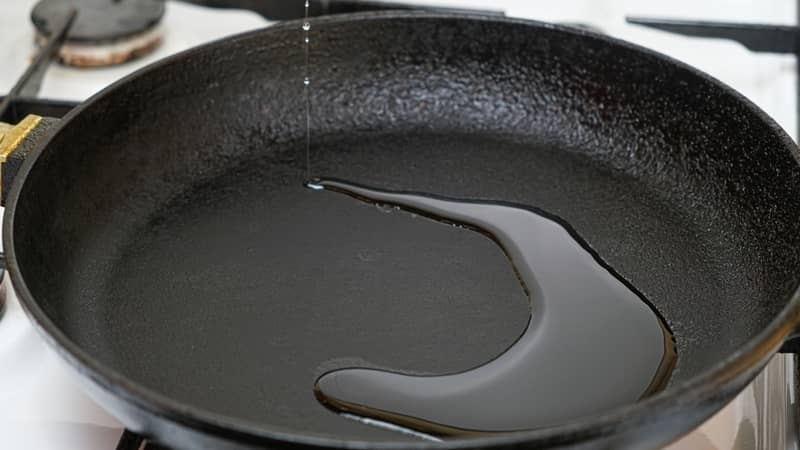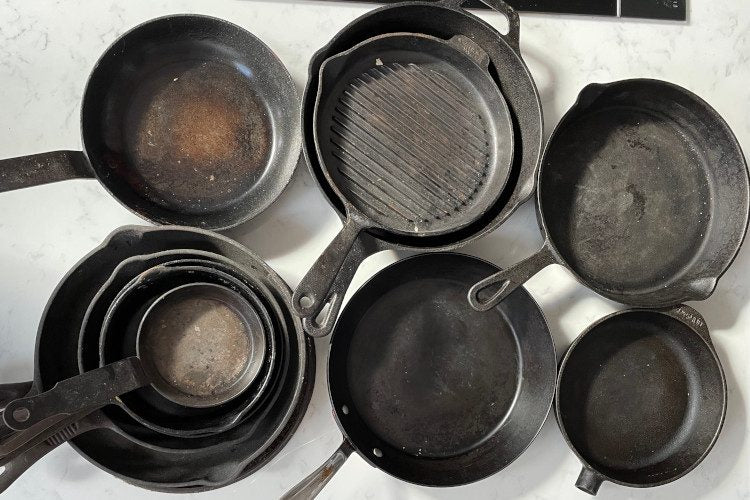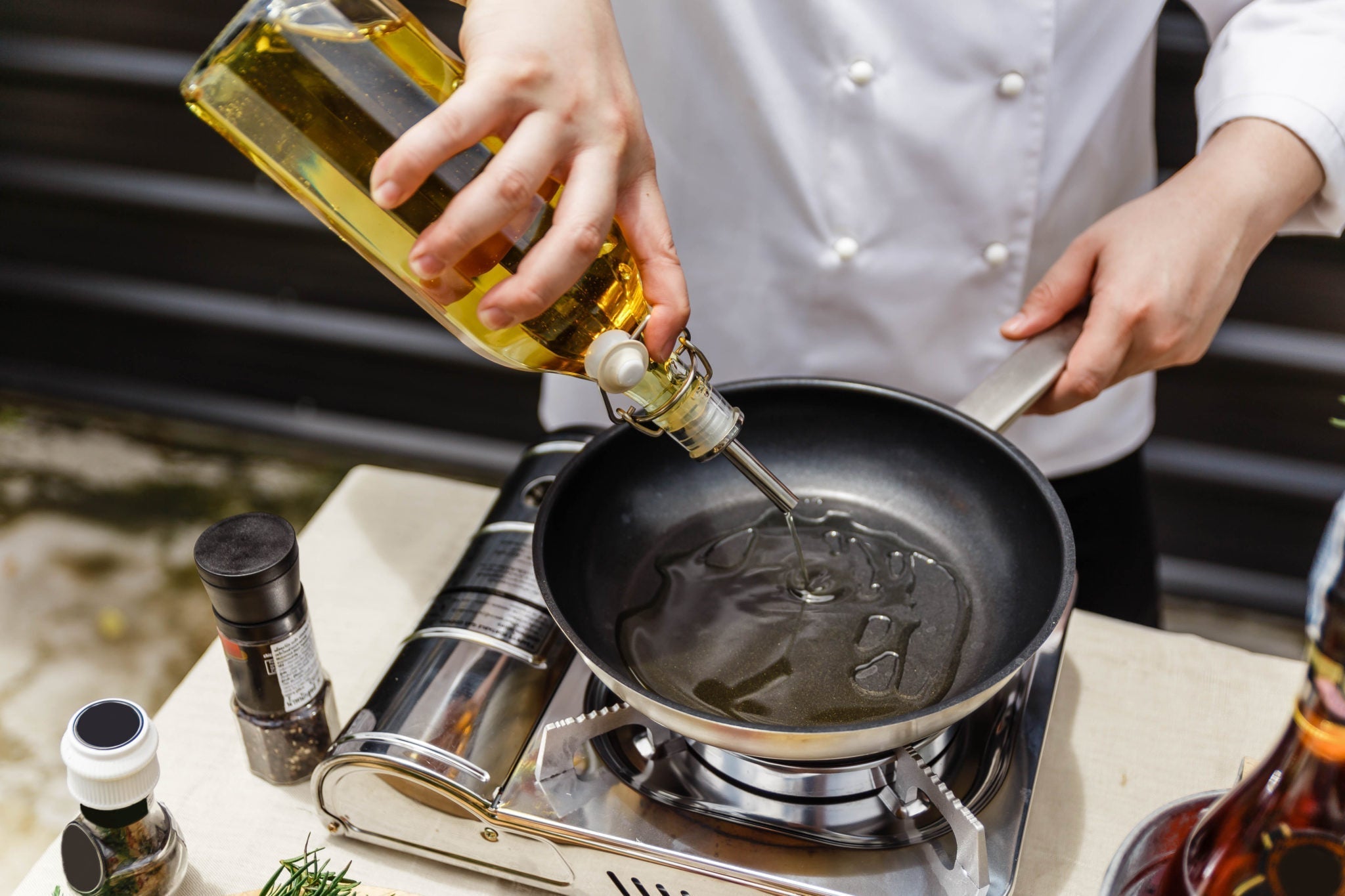If you're a kitchen professional, you know that the right oil can make all the difference in achieving that perfectly seasoned cast iron skillet. The question, what type of oil is best for cast iron seasoning, is a crucial consideration for maintaining the longevity and performance of this beloved cooking tool.
Choosing the right oil impacts flavor, smoke points, and overall durability of the seasoning layer on your cast iron cookware. In this article, we'll dive deep into the oils you can use, their pros and cons, and tips for seasoning your cast iron successfully.

Understanding Cast Iron Seasoning
Before we jump into the types of oils available, lets first clarify what seasoning actually means. Seasoning cast iron refers to the process of coating the surface with oil and heating it to create a non-stick layer. This not only enhances the cooking experience but also prevents rust.
Why Oil Selection Matters
The choice of oil for seasoning your cast iron is critical for several reasons. Different oils have varying smoke points, which is the temperature at which the oil begins to smoke and break down. If your oil has a low smoke point, it can leave a sticky residue on your cookware instead of creating the desired smooth surface.
Popular Oils for Cast Iron Seasoning
1. Vegetable Oil
One of the most common choices among kitchen professionals is vegetable oil. Its high smoke point, generally around 400F, makes it suitable for seasoning. Plus, its readily available at most grocery stores.
2. Flaxseed Oil
Flaxseed oil has gained popularity due to its high smoke point and health benefits. When polymerized correctly, it forms a durable, hard layer on the cast iron surface. Its a favorite among chefs for creating a truly non-stick finish.
3. Canola Oil
Canola oil is another excellent option for seasoning cast iron. With its high smoke point of about 400F, it's ideal for the task. Plus, it offers a neutral flavor, making it versatile for various dishes.
4. Grapeseed Oil
Grapeseed oil is favored for its high smoke point and light flavor. Its a good option for those who want to use something a bit different while still getting reliable results.
5. Lard or Bacon Grease
For a more traditional approach, lard or bacon grease can be indicative of authentic flavor profiles as well as high smoke points. These options not only protect your cookware but also infuse your food with rich flavors.
Tips for Seasoning Cast Iron
- Start with clean, dry cast iron.
- Apply a thin coat of oil, wiping off any excess.
- Heat your cast iron in an oven at around 400F to polymerize the oil.
- Allow the cookware to cool, then repeat the process if needed.

Frequently Asked Questions
1. Can I use olive oil for seasoning cast iron?
While olive oil has a lower smoke point, it can be used in seasoning, but it may leave a sticky residue if not properly polymerized.
2. How often should I season my cast iron?
Its generally recommended to season your cast iron every few months depending on usage. If you notice any signs of rust or if food starts to stick, its time for a re-season.
3. Is it possible to over-season cast iron?
Yes, over-seasoning can lead to a thick buildup that affects cooking performance. Its essential to apply only a thin layer of oil when seasoning.
In conclusion, the question of what type of oil is best for cast iron seasoning is complex, with various options to consider. Each oil has its advantages and unique properties that can contribute to the outcome. For more insights on specific oil types, you can reference best oil for seasoning cast iron pan.
As an Amazon Associate, I earn from qualifying purchases.






Leave a comment
This site is protected by hCaptcha and the hCaptcha Privacy Policy and Terms of Service apply.